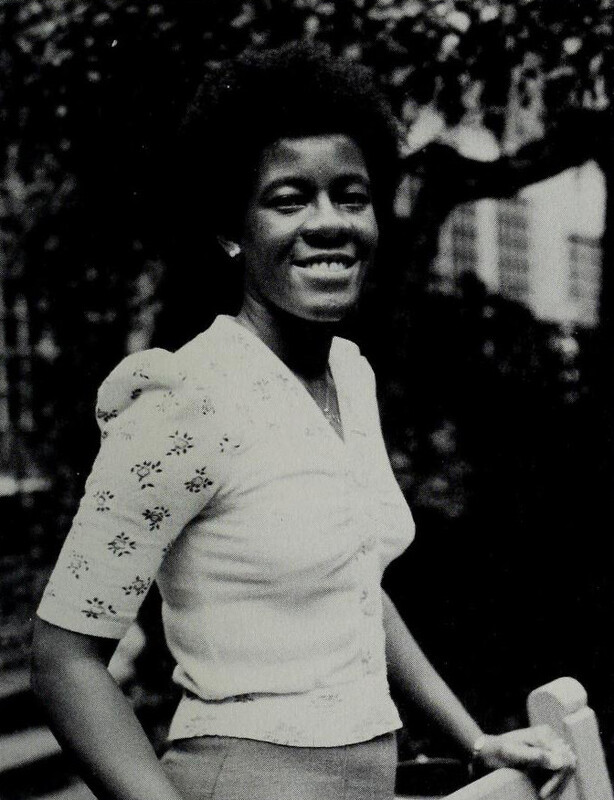Pamela Moran Dashiell ‘75
Justice Pamela Moran Dashiell ‘75 was interviewed by Sarah Granoff ‘23 in spring 2022.
Justice Dashiell describes student teaching at schools in Roxbury, Massachusetts.
Tags: Boston Busing, Career Development, Education Department, Race in Boston
Pamela Moran Dashiell Interview Clip
Transcript
Interviewer: Sarah Granoff (SG)
Narrator: Pamela Moran Dashiell (PD)
SG: So today in the Education Department, people do like fieldwork placements. Did you do fieldwork placements for the education [program]?
PD: Yes.
SG: Where did you do that?
PD: I can't remember both schools. One was the Ellis School, which was in Roxbury. I can’t remember the name of the other school – also in Roxbury. I do remember is that I started student teaching the year they started busing. That was really, really an interesting time to be here. Boston was an interesting place.
SG: Yeah, I wanted to ask about that. Yeah.
PD: And so I was in a school in Roxbury that had 9- 100 children. It was an elementary school. Two children were white. Two sisters. There was a white family that lived in the community. And they hadn't moved. That's all. I didn't think much about that. Because I grew up in an integrated community. So it didn't, didn't trouble me to see, like two white students. I was in the first grade class. When I got to my first day of school, I go in my blue suit, you know, trying to be professional. And I go into the principal's office, and I ask where I can find whoever I was supposed to be reporting to – Miss Smith. And she said, “You need to go to the cafeteria.” I said, “Okay.” So I go to the cafeteria, there’s nobody in the cafeteria – the workers [are there], who were all Black, and I said, “have you seen Miss Smith? I'm here to see Miss Smith. I’m supposed to be starting my student teaching. They said, “Oh, honey, they thought you were a cafeteria worker. Now you need to go to the teacher's lounge just around the corner.”
That resonated with me. That - that - that was like, probably the third incident I had. Maybe the second. In the four years I had been here, there had been like two or three incidents of overt racism that I hadn’t experienced in Chicago. It was interesting. So that was like one of them.
SG: Yeah.
PD: Okay. And at the end of the, at the end of – so I started student teaching in September – at the end of the first semester, because they moved you to a second school. I said, I went to my advisor, and I said, “I'm not doing - I can't do this. I can't, because the schools are nice, the teachers are nice, the parents are crazy.” You know, and I get Black parents telling me, you know, I was a student teacher blah blah blah, and they said, you know, “you're not teaching at this school. You’re not gonna teach here.” So I said, “I might not teach here, but I want to be a teacher.” [They said,] “No, no, look around you. You see any Black teachers in the school?” I didn't. 100 kids, so 98% percent Black. All the administrators and teachers are white except me. The only Black people in the school were the janitors and the cooks. And I didn't, I didn't even think about that. Because I went to school, we had mixed janitors, mixed – everybody was integrated. My schools were integrated. So it didn't occur to me that we only have Black janitors, because we didn't, you know? That the cafeteria people were all Black. Because they weren't.
SG: Right.
PD: I hadn't, I hadn't noticed that. And they weren't that way at Simmons either at the college, you know. So that school, having that kind of racial makeup, it didn't strike me until it was pointed out to me. And so it didn't – I said I would finish the student teaching, of course, but I'm not gonna teach. So I said to my advisor, “Is there anything else I can do?” This is December of my senior year, right? (SG: Yeah.) And she said, “you like to write? You’ve written term papers, because you're a psych major. Psych and Early Ed.” And I said, “Yeah,” she goes, “well you should go to law school, anybody can go to law school.” And I said, “Okay.” So I went home at Thanksgiving, and visited Northwestern Law School. Now, I had a father who was a lawyer, my cousin who lived across – grew up with us – was a lawyer, I had a brother in law school. But I didn't want to be a lawyer. So, I went to class with him at Northwestern, I went to class with him, and we went to Decedent Estates, which I loved. It was like all the relationships between people, first cousins, second cousins Once removed, blah, blah, blah, blah, blah. I said, “this is really interesting.” He goes, “this is awful.” I said, “this is great.” And he says, “then you'll be fine.” So I applied to law school. I came back [to Simmons], and I applied to law school.
